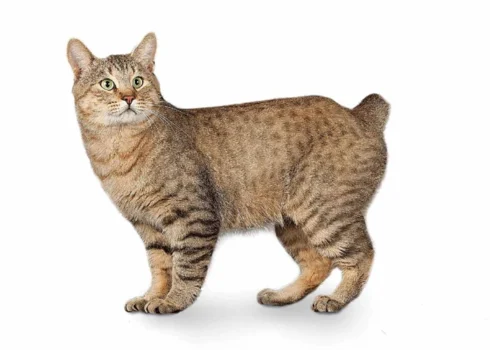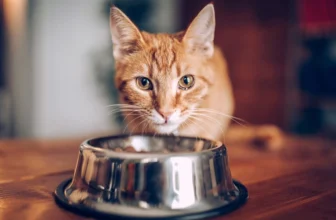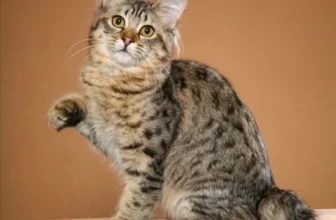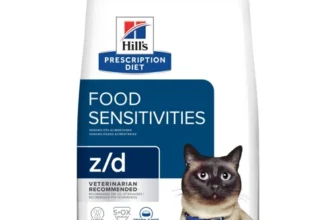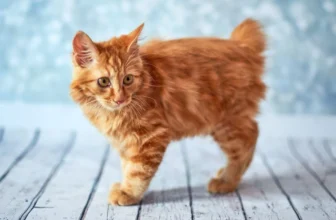The moment you decide to bring home a playful American Bobtail kitten, you become responsible for providing it with the best possible nutrition. Feeding your kitten well is not only essential for its growth and development, but it can also greatly influence its health and overall well-being. But with so many different kitten foods available in the market, it’s easy to get confused and overwhelmed. What type of food should you feed your kitten? How often should you feed it? Should you offer supplements and treats? In this article, we will explore special considerations and guidelines for feeding your American Bobtail kitten, ensuring a happy and healthy life for your feline friend.
The Nutritional Needs of American Bobtail Kittens
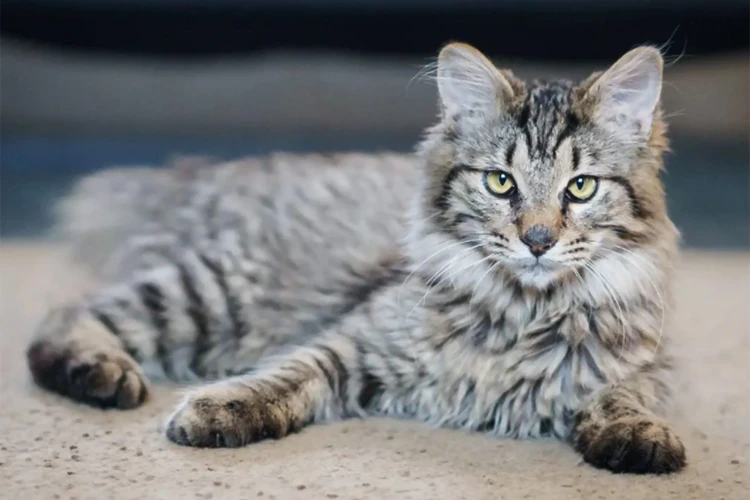
As a cat owner, it’s important to understand the nutritional needs of your furry friend, especially when it comes to American Bobtail kittens. These adorable kittens have specific dietary needs that are essential for their health and growth. Providing the right type and amount of food is crucial to ensure they receive all the nutrients they need to thrive. In this section, we’ll explore the nutritional requirements of American Bobtail kittens and provide you with useful information on feeding your kitten a healthy and balanced diet. For more information on the best cat food brands for American Bobtails or homemade cat food recipes, check out our comprehensive guide to cat food for American Bobtail cats.
Benefits of a High-Quality Kitten Food
When it comes to feeding American Bobtail kittens, providing them with high-quality kitten food can offer numerous benefits for their overall health and wellbeing. One of the primary advantages of feeding high-quality kitten food is that it provides kittens with the essential nutrients they need for healthy growth and development.
Here are some of the benefits of feeding your American Bobtail kitten high-quality kitten food:
- Provides essential vitamins and minerals needed for proper bone and muscle development.
- Supports a healthy immune system, helping kittens to fight off infections and illnesses.
- Contains high-quality sources of protein, such as poultry, fish, and meat, which are necessary for muscle growth and repair.
- Contains amino acids, which are the building blocks of protein and essential for healthy growth and development.
- Helps maintain healthy skin and fur, a strong digestive system, and good overall health.
- May help prevent certain health problems such as obesity and dental disease.
Feeding a high-quality kitten food can be especially important for American Bobtail kittens, as they have specific dietary needs that differ from adult cats. Kittens need a higher percentage of protein and fat in their diet, as well as smaller, more frequent meals throughout the day to fuel their growth and energy needs.
By choosing a high-quality kitten food that meets the nutritional needs of your American Bobtail kitten, you can help set them up for a happy and healthy life. It’s important to do your research and select a kitten food that includes high-quality ingredients and meets the specific dietary needs of your kitten.
For more information on the dietary needs of American Bobtails, check out our article on American Bobtail Cat Dietary Needs.
Protein and Carbohydrate Requirements
Protein and carbohydrates are two essential nutrients that play a vital role in the growth and development of American Bobtail kittens. Vital organs, muscles, and tissues are all made up of protein, which is why it’s important to ensure that your kitten is receiving an adequate amount daily. Carbohydrates are also important because they are the body’s primary energy source.
For a healthy growth and development, an American Bobtail kitten requires a diet with:
| Nutrient | Minimum Requirement | Ideal Requirement |
|---|---|---|
| Protein | 22% | 30% |
| Carbohydrates | 5% | 10% |
The ideal protein intake for American Bobtail kittens is between 30-35% of their daily caloric intake. The most biologically appropriate form of protein for kittens is animal-based, such as chicken, fish or turkey. Animal-based protein provides all the essential amino acids required by kittens for growth, immune health and energy.
Carbohydrates, on the other hand, should make up around 5-10% of a kitten’s daily caloric intake. Grain-free carbohydrates such as sweet potatoes, pumpkin or peas are a great option for kittens because they provide additional nutrients and fiber that help keep their digestion healthy.
The ideal requirement of protein and carbohydrates will vary based on their activity level, weight, and age. In general, it’s important to prioritize high-quality meals and avoid cheap, low-quality food options that are filled with fillers and by-products.
When feeding your American Bobtail kitten, it’s important to remember that good nutrition is not just about the amount of protein or carbohydrates they consume. Portion control is also essential for maintaining a healthy weight, which can prevent obesity in domesticated cats. For more information on portion control, feel free to check out this article for guidance.
You should consider high-quality cat food brands with the appropriate nutrient levels for American Bobtail kittens. Check out this list of the top cat food brands.
Ultimately, feeding your American Bobtail kitten with high-quality, nutrient-rich meals is essential for promoting their growth, health, and longevity. Avoid feeding unhealthy, human food or low-quality commercial pet food by making homemade meals with the best recipes. Check out these homemade cat food recipes for inspiration.
Wet vs. Dry Food Debate
When deciding between feeding wet or dry food to your American Bobtail kitten, there are several factors to consider. Both types of food have their advantages and disadvantages, and it ultimately comes down to personal preference and the needs of your kitten.
Wet Food:
Wet food can be a great choice for American Bobtail kittens, as it provides them with a high moisture content that can help prevent urinary tract issues. Additionally, wet food can be more palatable than dry food, which can encourage kittens to eat more and maintain a healthy weight. However, wet food can be more expensive and spoils quickly, requiring refrigeration and disposal of uneaten portions. It’s also important to note that feeding exclusively wet food can lead to dental problems, as it doesn’t provide the same level of teeth cleaning as dry food.
Dry Food:
Dry food is often more convenient and cost-effective than wet food, as it doesn’t require refrigeration and can be left out for longer periods of time without spoiling. Additionally, dry food can provide some dental benefit, as the crunching and chewing can help clean the teeth. However, it’s important to note that dry food typically has a lower moisture content than wet food, which could lead to dehydration and urinary tract issues if your kitten doesn’t drink enough water.
When choosing between wet and dry food, it’s important to consider which factors matter most for your American Bobtail kitten’s health and wellness. It’s also possible to provide a combination of wet and dry food to get the best of both worlds. Just be sure to monitor your kitten’s weight and adjust portions as necessary to maintain a healthy weight.
If you’d like to learn more about feeding guidelines for American Bobtail kittens, including free feeding vs timed feeding and treat recommendations, check out our articles: “Feeding American Bobtail Cats: Free-Feeding vs. Timed Feeding” and “The Ultimate American Bobtail Cat Treat Guide.” However, it’s important to note that there are certain foods you should avoid feeding your American Bobtail kitten, such as milk and chocolate. To learn more, check out our article: “Foods to Avoid Feeding Your American Bobtail Cat.”
Feeding Guidelines for American Bobtail Kittens
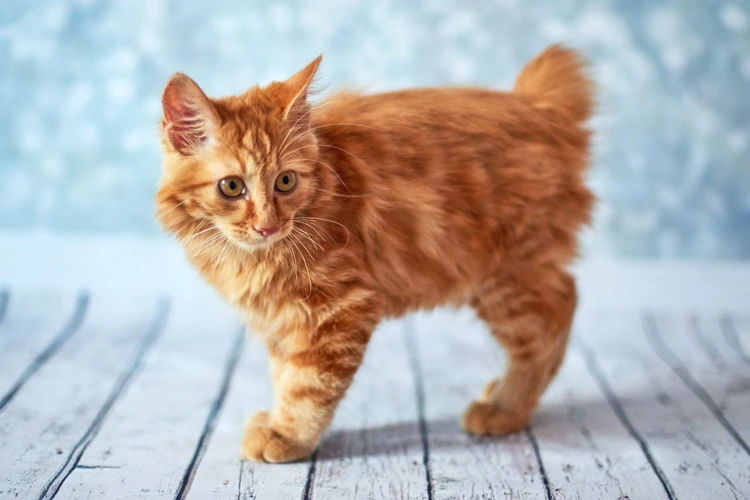
Feeding your American Bobtail kitten can be a daunting task, especially if you are a first-time cat parent. It is important to provide your kitten with a balanced and nutritious diet to ensure healthy growth and development. In this section, we will provide you with some essential feeding guidelines that will help you establish a feeding routine, determine portion sizes, and choose the right supplements and treats for your little furry friend. Let’s dive in!
Establish a Feeding Schedule
Establishing a regular feeding schedule is crucial when it comes to ensuring that your American Bobtail kitten receives the proper nutrition they need to grow and develop. Kittens grow rapidly and require frequent meals, so it is recommended to feed them 3-4 small meals a day. Use the table below as a guide for establishing a feeding schedule for your American Bobtail kitten.
| Age | Number of Meals | Feeding Schedule |
|---|---|---|
| 6-8 weeks | 4 | Every 4-6 hours |
| 8-12 weeks | 3 | Every 5-6 hours |
| 12-16 weeks | 3 | Every 6-8 hours |
It is important to note that different kittens may have different appetites and preferences, so be sure to adjust the feeding schedule as needed. Additionally, always provide clean, fresh water for your kitten and make sure it is easily accessible. With a consistent feeding schedule and plenty of water, your American Bobtail kitten will be on the right track for healthy development.
Portion Sizes: How Much Should You Feed?
Determining the correct portion sizes for American Bobtail kittens can be a bit perplexing, but it’s an important part of ensuring they receive proper nutrition. The table below outlines general guidelines for portion sizes based on age and weight.
| Age | Weight | Amount per Meal | Number of Meals |
|---|---|---|---|
| 4-8 weeks | 0.5-1 lb | 1/4-1/2 can or 1/4-1/2 cup dry | 4-5 |
| 1-2 lb | 1/2-3/4 can or 1/2-3/4 cup dry | 4-5 | |
| 8-12 weeks | 2-3 lb | 3/4-1 can or 3/4-1 cup dry | 3-4 |
| 3-4 lb | 1-1 1/4 cans or 1-1 1/4 cups dry | 3-4 | |
| 12-26 weeks | 4-6 lb | 1 1/4-1 1/2 cans or 1 1/4-1 1/2 cups dry | 3 |
| 6-9 lb | 1 1/2-2 cans or 1 1/2-2 cups dry | 3 |
It’s important to keep in mind that these are general guidelines and each kitten may have different needs. It’s best to consult with a veterinarian to determine the appropriate portion sizes for your kitten based on their individual needs and activity level. Always provide plenty of fresh, clean water and monitor your kitten’s weight to ensure they are receiving proper nutrition without becoming overweight. With careful attention to portion sizes and proper nutrition, you can help ensure your American Bobtail kitten grows up healthy and strong.
Supplements and Treats
When it comes to supplements and treats for American Bobtail kittens, it’s important to be cautious and choose wisely. Not all supplements or treats may be suitable for your kitten, and excessive amounts can lead to health problems.
Supplements
Before considering any supplements, it’s essential to consult with a veterinarian. They may recommend supplements if your kitten has any specific dietary needs or deficiencies. Otherwise, a well-balanced diet with high-quality kitten food should provide all the necessary nutrients.
However, if you do decide to give your American Bobtail kitten a supplement, choose one specifically formulated for kittens and follow the recommended dosage. It’s crucial not to over-supplement, as this can lead to imbalances and health issues.
Treats
Treats can be a great way to reinforce positive behavior and bond with your kitten. However, they should not replace regular meals and should be given in moderation.
When choosing treats, opt for those specifically formulated for kittens. Avoid giving human foods, as these can be harmful to your kitten’s health. Additionally, avoid treats that have high amounts of sugar or artificial preservatives, as they can lead to weight gain and health issues.
When giving treats, use them sparingly and as a reward for good behavior. Overindulging in treats can lead to weight gain and digestive issues.
Supplements and treats should only supplement a well-rounded, high-quality diet for American Bobtail kittens. Consult with a veterinarian before giving any supplements and choose treats carefully in moderation.
Special Considerations for Feeding American Bobtail Kittens
As with any pet, feeding your American Bobtail kitten requires special attention and consideration. Understanding your kitten’s unique needs is key to ensuring their overall health and wellbeing. From food allergies to mealtime etiquette, there are several factors to consider when feeding your American Bobtail kitten. Let’s take a closer look at some of these special considerations and guidelines to help you provide the best nutrition for your furry friend.
Food Allergies and Intolerances
It is important to be aware of potential food allergies and intolerances when feeding American Bobtail kittens. Food allergies occur when the immune system reacts to a specific protein in the food, while intolerances involve a non-immune response to certain ingredients, such as lactose or grains.
Signs of Food Allergies and Intolerances:
- Itching or scratching
- Vomiting and diarrhea
- Swollen face and paws
- Chronic ear infections
- Red and irritated skin
If you suspect that your kitten has a food allergy or intolerance, consult with your veterinarian to rule out any underlying health issues. There are specialized diets available that cater to dietary restrictions, such as grain-free or limited ingredient options.
Common Allergenic Ingredients to Avoid:
- Wheat and other grains
- Beef and other red meats
- Dairy products
- Chicken and other poultry
- Eggs
- Corn
It is important to read ingredient labels carefully when choosing a kitten food and to introduce new foods gradually to prevent any adverse reactions. Keep in mind that even the high-quality foods may contain allergenic ingredients, so it is important to be vigilant about monitoring your kitten’s reactions.
By paying attention to your kitten’s reactions to certain foods and ingredients, you can ensure that they are receiving the proper nutrition to support their growth and development without any negative side effects.
Indoor vs. Outdoor Kittens
It’s important to consider whether your American Bobtail kitten will be an indoor or outdoor pet when it comes to their feeding needs. Indoor kittens tend to be more sedentary and require fewer calories, while outdoor kittens are more active and burn more energy. Here are some special considerations for feeding indoor vs. outdoor American Bobtail kittens:
| Indoor Kittens | Outdoor Kittens |
|---|---|
| Calorie Requirements: Indoor kittens require fewer calories per day than their outdoor counterparts, as they tend to be less active. | Calorie Requirements: Outdoor kittens have higher calorie requirements due to their increased activity levels. |
| Exercise: Indoor kittens may not get as much exercise as outdoor kittens. You can encourage activity by playing games with them and providing toys. | Exercise: Outdoor kittens have more opportunities for exercise and play, such as climbing trees and chasing prey. |
| Environmental Factors: Indoor kittens are not exposed to the same environmental factors as outdoor kittens, such as extreme heat or cold, pollution, and potential predators. | Environmental Factors: Outdoor kittens may be exposed to harsh weather conditions, pollution and potential predators, which may affect their overall health and wellbeing. |
| Weight Management: Indoor kittens are more prone to obesity if they are overfed or do not get enough exercise. It’s important to monitor their weight and adjust their food intake and activity levels accordingly. | Weight Management: Outdoor kittens may have a higher metabolism, but it’s still important to monitor their weight and adjust their food intake as needed. |
By considering whether your American Bobtail kitten will be indoor or outdoor, you can tailor their feeding plan to meet their specific needs and ensure they remain healthy and happy.
Mealtime Etiquette
When it comes to feeding American Bobtail kittens, it is important to not only consider what to feed them but also how to feed them. Below are some mealtime etiquette guidelines that can help ensure a pleasant and safe feeding experience for both you and your kitten.
- Use a Clean Bowl: Always serve your kitten’s food in a clean bowl. Wash and dry the bowl thoroughly before each meal to prevent bacterial growth and contamination.
- Avoid Crowding: Give your kitten enough personal space while eating. Avoid crowding your kitten while it is eating to prevent any anxiety or aggression.
- Prevent Begging: Do not feed your kitten table scraps or human food as it can promote bad habits and begging behavior. Stick to the diet and feeding schedule recommended by your veterinarian.
- Monitor Mealtime: Keep an eye on your kitten while it eats. This helps to ensure that it is consuming enough nutrients and also to make sure it doesn’t choke while eating.
- Keep it Calm: Avoid loud noises or sudden movements while your kitten is eating. This can cause your kitten to become scared or anxious and make mealtime stressful.
- Clean-up: Remove any uneaten food within 20-30 minutes after feeding to prevent contamination and the growth of bacteria. Always dispose of uneaten food properly according to local regulations.
By following these mealtime etiquette guidelines, you can help create a harmonious and healthy relationship between you and your kitten during mealtime.
Conclusion
In conclusion, feeding your American Bobtail kitten a nutritionally balanced diet is crucial for their overall health and wellbeing. Opting for high-quality, protein-rich kitten food that meets their specific dietary requirements can ensure that they receive the necessary nutrients to support growth and development.
It is important to establish a feeding schedule and portion sizes that are appropriate for your kitten’s age and activity level to avoid overfeeding or underfeeding. Moreover, being aware of any food allergies or intolerances that your kitten may have is crucial in preventing any adverse reactions or health issues.
In addition, while the debate between wet and dry food continues, it is important to remember that both options can provide necessary nutrients for your American Bobtail kitten. However, it is crucial to provide fresh water at all times, regardless of what food you choose to provide.
Furthermore, when it comes to mealtime etiquette, it is important to teach your kitten proper manners and behaviors around food. This can include using food puzzles or interactive feeding toys to slow down eating and prevent overeating, as well as discouraging begging behaviors.
Overall, by being mindful of your American Bobtail kitten’s nutritional needs, establishing a feeding routine, and providing a safe and comfortable mealtime environment, you can help ensure that they grow up to be happy and healthy adult cats.
Frequently Asked Questions
What is the best food to feed American Bobtail kittens?
The best food to feed American Bobtail kittens is high-quality kitten food that is specifically formulated to meet the nutritional needs of growing kittens.
How often should American Bobtail kittens be fed?
American Bobtail kittens should be fed small, frequent meals throughout the day, with a total of at least three to four meals per day.
Is wet food or dry food better for American Bobtail kittens?
Both wet and dry food can be suitable options for feeding American Bobtail kittens, but wet food is often preferred due to its higher moisture content and lower carbohydrate content.
How much food should I feed my American Bobtail kitten?
The amount of food a American Bobtail kitten should be fed depends on their age, weight, and activity level. As a general guideline, they should be fed about 3-4 meals a day and the total amount of food should not exceed more than 10% of their body weight per day.
Can I give my American Bobtail kitten human food?
While it may be tempting to share your food with your American Bobtail kitten, it’s best to stick to a high-quality kitten food that is formulated to meet their nutritional needs. Many human foods can be harmful to kittens.
Do American Bobtail kittens need supplements?
A well-balanced kitten food should provide American Bobtail kittens with all the nutrients they need, so supplements are generally not necessary unless recommended by a veterinarian based on specific needs or deficiencies.
What should I do if my American Bobtail kitten has a food allergy?
If you suspect that your American Bobtail kitten has a food allergy or intolerance, it’s important to speak with a veterinarian who can recommend an appropriate diet or perform tests to determine the underlying cause.
Should I feed my indoor and outdoor American Bobtail kittens differently?
The nutritional needs of indoor and outdoor American Bobtail kittens can vary, but it’s generally recommended to feed them the same diet unless there are specific health concerns or differences in activity levels.
What is the best way to establish a feeding schedule for my American Bobtail kitten?
The best way to establish a feeding schedule for your American Bobtail kitten is to stick to a consistent routine and schedule, dividing their daily intake into several small meals rather than one or two larger ones.
Is it okay to give treats to American Bobtail kittens?
Treats can be a delicious and fun way to bond with your American Bobtail kitten, but they should be given in moderation and shouldn’t make up a significant portion of their daily caloric intake. Stick to healthy, kitten-friendly treats in small amounts.

